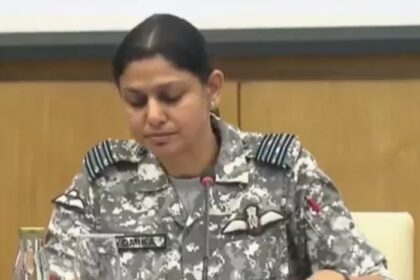
Avinash Azad
Upholding the judgement J&K and Ladakh High Court pronounced on 12/05/2022 Jasvinder Singh, ex MD SICOP verses State of J&K, the Supreme Court has dismissed the Special Leave Petitions. https://drive.google.com/file/d/1sZQaocYCzhxRiaHJnn95SUaKxJqezXyR/view?usp=share_linkThe Division bench of Supreme Court comprises of Justice A.S. Bopanna and Justice Sanjay Karol said, “Having heard learned counsel for the petitioner, in the facts and circumstances of the instant case, we see no reason to interfere with the judgment impugned. The Special Leave Petitions (SLPs) are, accordingly, dismissed. However, the question of law, if any, arises, it is left open.” https://drive.google.com/file/d/1oMzaDJkuQKsmhqH_EArZZc8oIPYS7jAf/view?usp=share_linkEarlier on May 12, 2022, a bench of Justice Javed Iqbal Wani, High Court of J&K and Ladakh had quashed the FIRs against former Managing Directors of SICOP, B S Dua and J S Dua registered by the Anti-Corruption Bureau (ACB), observing that FIRs as also the record do not show commission of offence of criminal conspiracy by the two former MDs of SICOP.
The FIRs were registered with the Police Station, ACB Jammu for offences under the J&K Prevention of Corruption Act and Section 120-B of RPC and the ACB had registered the FIRs following the verification revealing that Jasvinder Singh Dua had a sudden swift rise within 16 years of his service career as he rose to the post of MD SICOP.
“The FIR had indicated that JS Dua had initially been appointed in SICOP as JE on January 15, 1998 for three months with the approval of the then MD SICOP A K Khullar After approximately three years of his service as JE he was regularized by the then MD “under pre-designed conspiracy with the then General Manager SICOP being his uncle”, High Court of J&K and Ladakh judgement dated, May 12, 2022 reads.
After hearing both the sides, Justice Javed Iqbal Wani quashed the FIRs. “The facts emerging from the record indisputably tends to show that the petitioner- Jasvinder Singh got appointed in SICOP initially on adhoc basis and subsequently got regularized and promoted from time to time like other appointees in the SICOP,” the court said, adding, “incidentally during the working of his uncle petitioner-Bopinder Singh Dua in the SICOP”.
“Fact also remains that the appointment and regularization of the petitioner- Jasvinder Singh in SICOP had been made by the officer other than petitioner Bopinder Singh Dua-by the then Managing Director who had made such appointment and regularization on the same lines the other Managing Directors had made in the SICOP from time to time”, the Court said, adding, “it is also not in dispute that none of the appointments in the SICOP during that relevant point of time had been made in tune with the constitutional mandate i.e., by advertising the posts”.
The court said that while the mode and procedure adopted and followed in the SICOP in the matter of making appointments had indeed been irregular, “it cannot be lost sight of that the appointment of the petitioner-Jasvinder Singh was not such a solitary case.”
“The necessary ingredients of dishonest intention in making such appointment of the petitioner-Jasvinder Singh or his regularization as well promotions is manifestly not traceable, having regard to the facts and circumstances of the case, even if it may be assumed for the sake of arguments that the appointment and regularization of the petitioner had been made by misusing the positions by the then Managing Director,” the court said, adding, “the promotions earned by Jasvinder Singh however, admittedly have been made upon the recommendations of Departmental Promotion Committee and not individually by the Managing Director in league with the petitioner-Bopinder Singh Dua as is alleged.” The court said that no material or evidence worth the name seemingly is available on the record in the CD file prima facie disclosing the commission of the offences alleged against the petitioners under Section 5(1) (d) read with Section 5(2) of the J&K Prevention of Corruption Act. The court said that neither the FIR nor the record tend to show that the commission of offence of criminal conspiracy by the petitioners. Subsequently the High Court quashed the FIRs.





